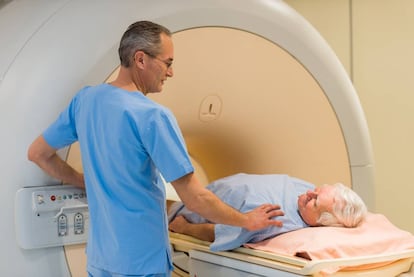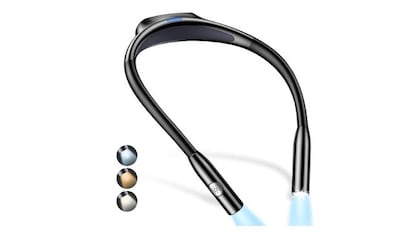How prostate cancer affects a man’s sexuality
No questions should be off limits when it comes to dealing with this disease, and how it relates to the most intimate aspect of life
Mention prostate cancer to a man and he may tense up at the thought of what this type of disease may do to his sex life. They may wonder how it will affect their ability to have an orgasm after treatment or their ability to achieve and maintain an erection. These and other questions are ones men often want answered regarding this disease, and how it relates to the most intimate aspect of life.

First, it is not unusual for men who have had prostate cancer to likely face some sexuality issues to cope with as they go through treatment and beyond. Things may be different but that doesn’t mean they are worse than before the diagnosis. If a man is experiencing issues in the bedroom, the sooner he discusses this with his doctor, the more likely improvements can be made to address the concern. Keep in mind, the five-year survival rate for prostate cancer overall is quite high: 99%. There is a lot of living left to do and that includes a man being able to enjoy a satisfying and pleasurable sex life now and in the future.
At 99%, the five-year survival rate for prostate cancer overall is quite high
Here are two questions men may want answered at the time of diagnosis and during and after prostate cancer treatment. No question should be off limits as a man’s urologist will be able to answer them thoroughly giving him the best advice he needs.
1. Will I be able to have an orgasm after prostate cancer treatment?
The answer to this is a resounding yes. Almost all men are able to achieve an orgasm following prostate cancer treatment. Prostate cancer treatments may damage nerves and blood vessels that are important for achieving an erection but are not necessarily important for reaching an orgasm. One thing a man should know is that the prostate is the gland that produces most of the fluid that makes up semen. Once the prostate has been removed by surgery or destroyed by radiation, a man’s orgasm will be nearly or completely dry and are known as a “dry orgasm” or retrograde ejaculation. They can be just as pleasurable and fulfilling as they used to be before prostate cancer.
2. What will my sex life be like during and after prostate cancer?
This is a question often likely looming large in most men’s minds. You would think beating back prostate cancer would be the more pressing issue but sexuality is a very important part of our being.
Men should realize that sex most likely will be different, but not necessarily worse
Men should realize that sex most likely will be different but again, it doesn’t mean it will be worse. It helps to break it down into three categories of how prostate cancer affects a man’s sexuality – desire, erectile dysfunction, and the third, orgasm, which has already been addressed previously.
- Sexual desire
Sexual desire is what pulls the trigger in the initiation of sex. Does prostate cancer affect a man’s desire for sex? Yes, it can. The way it does includes the following:
- Concern over his performance.
- The psychological impact of a cancer diagnosis.
- Fatigue – almost all people going through cancer treatment will have fatigue.
- His self-image after prostate surgery.
- Fear of recurrence, progression, and death.
- Low testosterone levels due to treatment.
If any of these issues are resulting in a diminished desire for sex, there are several things men might consider to help them deal with this issue:
- Joining a prostate cancer support group offered through his doctor’s office or hospital
- Joining an online prostate cancer support group
- Seeking individual help with a counselor
- Erectile dysfunction
Any kind of prostate cancer treatment (radiation, surgery, cryotherapy or hormone therapy) may lead to the inability to achieve and or maintain an erection. This condition may last only for a short time or it could be long-term. However, many men who undergo treatment for prostate cancer see little or no effect to their erectile dysfunction.
Any kind of prostate cancer treatment may lead to the inability to an erection
There is no definitive way to determine which men will have erectile dysfunction after treatment for prostate cancer. Men more likely to experience it are those who already had vascular conditions, diabetes, obesity, or pre-existing erectile problems before their prostate cancer diagnosis.
It is important for men to remember that when faced with erectile dysfunction following prostate cancer treatment, there is still hope. There are very effective treatments for this and many men can, and do, return to leading healthy sexual lives despite this problem.
Dr. Samadi is a board-certified urologic oncologist trained in open and traditional and laparoscopic surgery and is an expert in robotic prostate surgery. He is chairman of urology, chief of robotic surgery at Lenox Hill Hospital. He is a medical correspondent for the Fox News Channel's Medical A-Team. Follow Dr. Samadi on Twitter, Instagram, Pinterest, SamadiMD.com and Facebook.
Tu suscripción se está usando en otro dispositivo
¿Quieres añadir otro usuario a tu suscripción?
Si continúas leyendo en este dispositivo, no se podrá leer en el otro.
FlechaTu suscripción se está usando en otro dispositivo y solo puedes acceder a EL PAÍS desde un dispositivo a la vez.
Si quieres compartir tu cuenta, cambia tu suscripción a la modalidad Premium, así podrás añadir otro usuario. Cada uno accederá con su propia cuenta de email, lo que os permitirá personalizar vuestra experiencia en EL PAÍS.
¿Tienes una suscripción de empresa? Accede aquí para contratar más cuentas.
En el caso de no saber quién está usando tu cuenta, te recomendamos cambiar tu contraseña aquí.
Si decides continuar compartiendo tu cuenta, este mensaje se mostrará en tu dispositivo y en el de la otra persona que está usando tu cuenta de forma indefinida, afectando a tu experiencia de lectura. Puedes consultar aquí los términos y condiciones de la suscripción digital.




























































